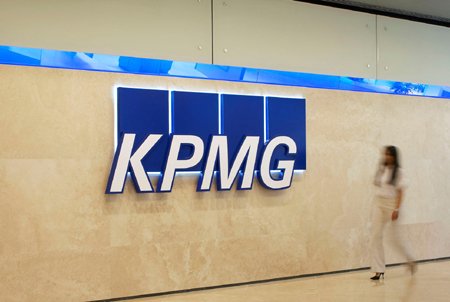ECJ TAX JUDGEMENT ADDS HUNDREDS OF MILLIONS OF POUNDS ANNUALLY TO COST OF GLOBAL FINANCIAL INSTITUTIONS DOING BUSINESS IN THE UK AND EU, SAYS KPMG
Published by Gbaf News
Posted on September 20, 2014
3 min readLast updated: January 22, 2026

Published by Gbaf News
Posted on September 20, 2014
3 min readLast updated: January 22, 2026

A European Court of Justice Judgement issued on VAT grouping rules will cost financial institutions and potentially other VAT exempt businesses hundreds of millions of pounds annually, according to KPMG in the UK.
European VAT law permits, at their discretion, EU member states to allow companies in their territory under common control to be treated as a ‘single taxable persons for VAT purposes. This includes local branches of overseas establishments. The UK, along with several other member states, has exercised this discretion and many businesses across a range of sectors adopt this approach.
These grouping arrangements mean that groups can share common services amongst themselves without incurring VAT.

ECJ TAX Judgement Adds Hundreds Of Millions Of Pounds Annually To Cost Of GLOBAL FINANCIAL INSTITUTIONS Doing Business In The UK And EU, Says KPMG
The European Court has ruled today that where a VAT group is operated in a member state and it receives services into a branch within the VAT group from its main establishment located outside the EU that service should be subject to VAT. What this means is that where previously such services supplied into VAT groups were largely VAT-free, they will now be subject to VAT which, in the UK, is levied at 20 percent.
For the financial sector and other VAT exempt businesses, this additional incidence of VAT represents a significant additional cost since a consequence of being VAT exempt is that they are largely unable to recover VAT which they incur.
Richard Iferenta, head of financial services indirect tax at KPMG in the UK, said:
“What this ruling does is, at a stroke, add hundreds of millions of pounds to the annual cost of financial institutions doing business in the UK and other EU member states. It’s clear that if the UK takes the most restrictive interpretation of the judgement any transactions with a branch that is in a VAT group will be impacted. Furthermore with the UK’s position as a global financial services centre and the consequential level of inward investment into the UK by foreign financial services business that flows from that, the financial impact of the judgement may be felt hardest in the UK”.
He added, “What is surprising here is that the final judgment issued by the Court runs somewhat contrary to the earlier ‘Opinion’ issued by the Advocate General in this case when typically the Opinion is indicative of the likely final decision. The UK government had argued strongly that the UK’s position on this issue, which included targeted anti-avoidance rules to prevent any abuse, was consistent with EU law and that there was no need to change the status quo. The Advocate General appeared to largely agree with this in their earlier opinion so this change of stance by the full court was unexpected.”
According to KPMG, the next stage in the process is for the tax authorities in all the EU member states to consider the ECJ’s decision and decide how it impacts their local tax legislation. According to Richard Iferenta, “Financial institutions are likely to examine their VAT grouping arrangements and which services they are buying in from outside the EU. Some may decide to change their existing models as a result.”
Explore more articles in the Top Stories category











